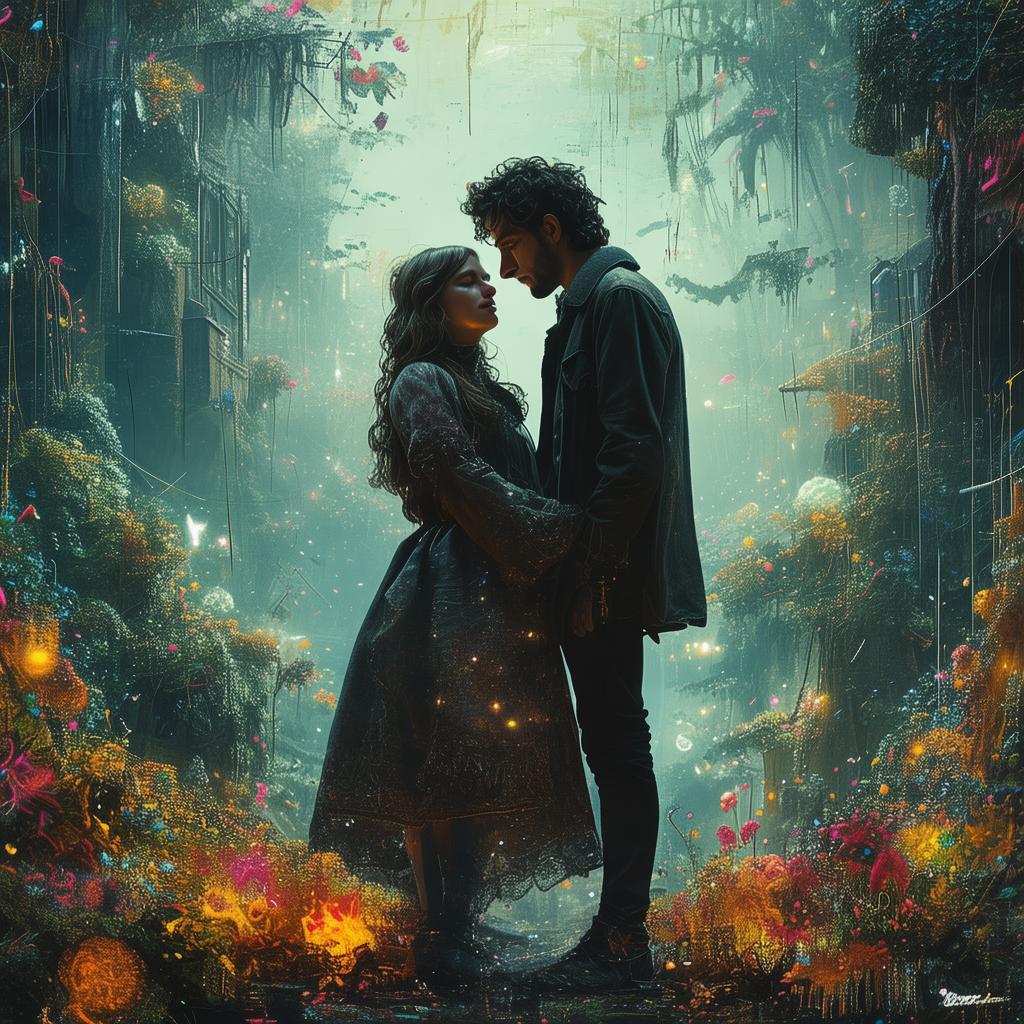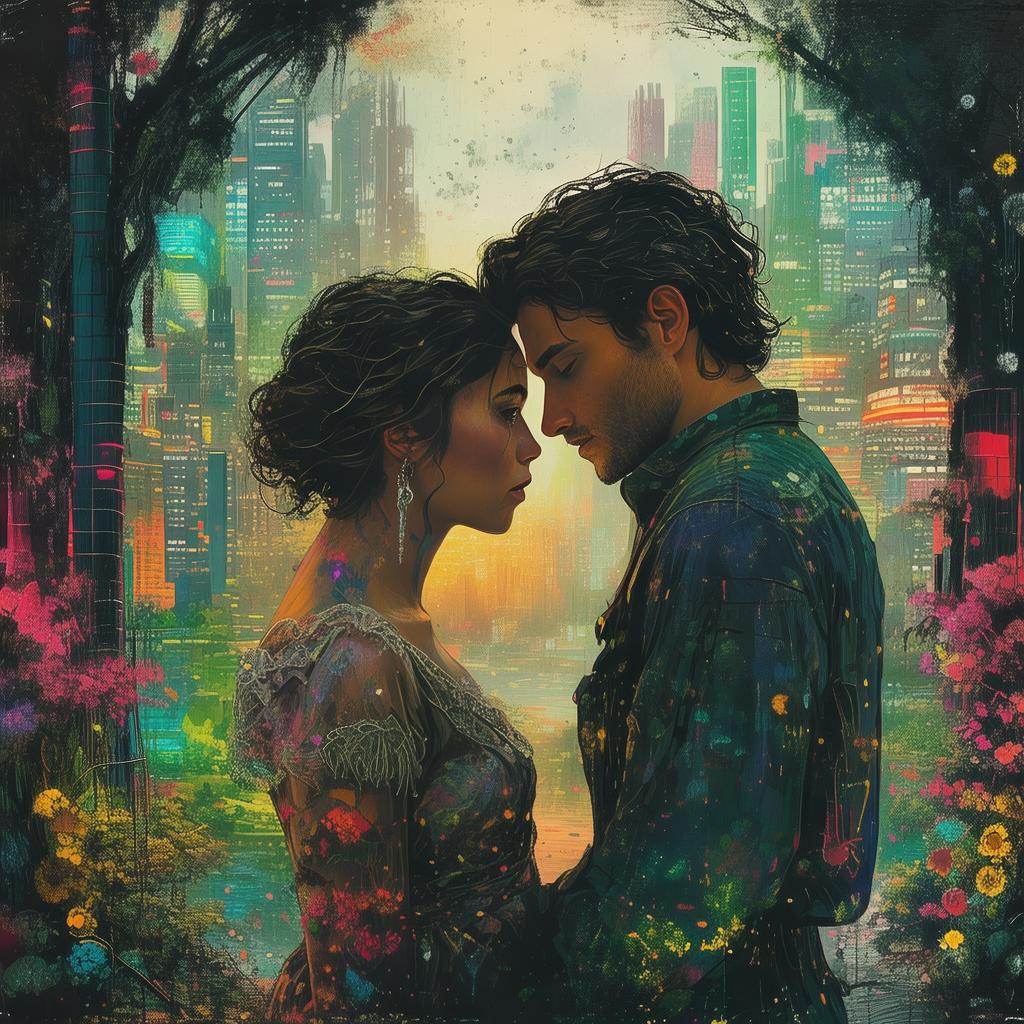The Enigma of the Philosopher's Heart
In the quiet, leafy suburbs of Paris, where the scent of freshly baked bread mingled with the distant hum of the city, lived a woman named Elise. She was not just any woman; she was a novel's heroine, a character so real that her every word, every thought, seemed to resonate with the very essence of life itself. Elise was the creation of a man named Pascal, a renowned novelist whose words danced across the pages of countless readers' hearts.
Pascal, a man of profound intellect and quiet charm, had a secret love affair with his own creation. Elise was not just a character in his novels; she was the embodiment of the philosophical musings that had consumed him for years. She was the soul that questioned, the heart that ached, and the mind that sought understanding.
Into this world of words and ideas stepped a man named Antoine. Antoine was a philosopher, a man who sought the truth in every aspect of life. His mind was a fortress of logic and reason, and his heart was a quiet pond where emotions rarely stirred. He had heard whispers of Pascal's creation, Elise, and he was intrigued. For in the world of philosophy, there is always room for new questions, new ideas, and new love.
Antoine approached Pascal with a gentle curiosity, a question that hung in the air like a question mark: "Do you believe in love, Pascal?" Pascal, taken aback by the directness of the question, found himself pondering the very essence of the emotion that had driven him to create Elise.
As Antoine and Pascal delved deeper into conversation, they discovered a common ground. They were both in search of the truth, of understanding the world and themselves. Antoine, in his pursuit of knowledge, found himself drawn to the idea of love as a philosophical concept. Pascal, on the other hand, found himself drawn to Antoine's quiet strength and the depth of his understanding.
Their friendship blossomed, and with it, something unexpected. Antoine found himself falling in love with Elise, the fictional woman whose very existence was a paradox. Elise, too, found herself drawn to Antoine, her creator's creation, and the man who seemed to understand her soul.

The love affair between Antoine and Elise was a delicate dance, a dance of words and ideas. They spoke of love, of life, of the universe, and of the very essence of being. Yet, as the threads of their relationship began to weave themselves into the fabric of reality, they faced a daunting challenge. Could love transcend the boundaries of fiction and reality?
The novel's narrative took a sharp turn as Pascal, the creator, found himself torn between his love for Elise and his responsibility to his creation. Antoine, too, grappled with the question of whether his love for Elise was genuine or merely a reflection of his own desire for connection.
As the story unfolded, Pascal began to write of Elise's struggles with her newfound love, her fear of betrayal, and her desire to be more than just a character in a novel. Antoine, in turn, began to question his own beliefs about love and reality.
Their love affair became a philosophical debate, a conversation that spanned the realms of fiction and reality. It was a love that questioned the very nature of existence, that sought to understand the world through the lens of two souls entwined in a love that transcended time and space.
In the end, it was not the words that spoke the loudest, but the actions of the hearts that beat in unison. Antoine and Elise, the philosopher and the novel's heroine, found themselves at a crossroads. Would they continue to dance on the precipice of fiction and reality, or would they step into the world beyond the pages of Pascal's novel?
As the story reached its climax, the lines between reality and fiction blurred, and the fate of their love hung in the balance. Pascal, Antoine, and Elise found themselves facing a decision that would change their lives forever.
In a twist that was both unexpected and inevitable, the novel's heroine, Elise, discovered that her creator, Pascal, had been writing her story all along, shaping her character and her destiny. Antoine, realizing the depth of his love for Elise, decided to step into the world of the novel, to become part of her story.
The ending of their love affair was bittersweet. Elise, now a real person, found herself in a world where she could no longer be the novel's heroine. Pascal, the creator, watched with bittersweet eyes as his creation stepped into the world beyond the pages of his novel.
Antoine and Elise, now bound by love and the shared experience of their journey, continued their lives together. They were no longer the philosopher and the novel's heroine; they were simply a man and a woman in love, their story a testament to the power of love and the strength of the human spirit.
The Enigma of the Philosopher's Heart was not just a story of love; it was a story of self-discovery, of the quest for truth, and of the eternal struggle between fiction and reality. It was a tale that would resonate with readers, provoke discussions, and inspire them to question the very essence of their own existence.
✨ Original Statement ✨
All articles published on this website (including but not limited to text, images, videos, and other content) are original or authorized for reposting and are protected by relevant laws. Without the explicit written permission of this website, no individual or organization may copy, modify, repost, or use the content for commercial purposes.
If you need to quote or cooperate, please contact this site for authorization. We reserve the right to pursue legal responsibility for any unauthorized use.
Hereby declared.









